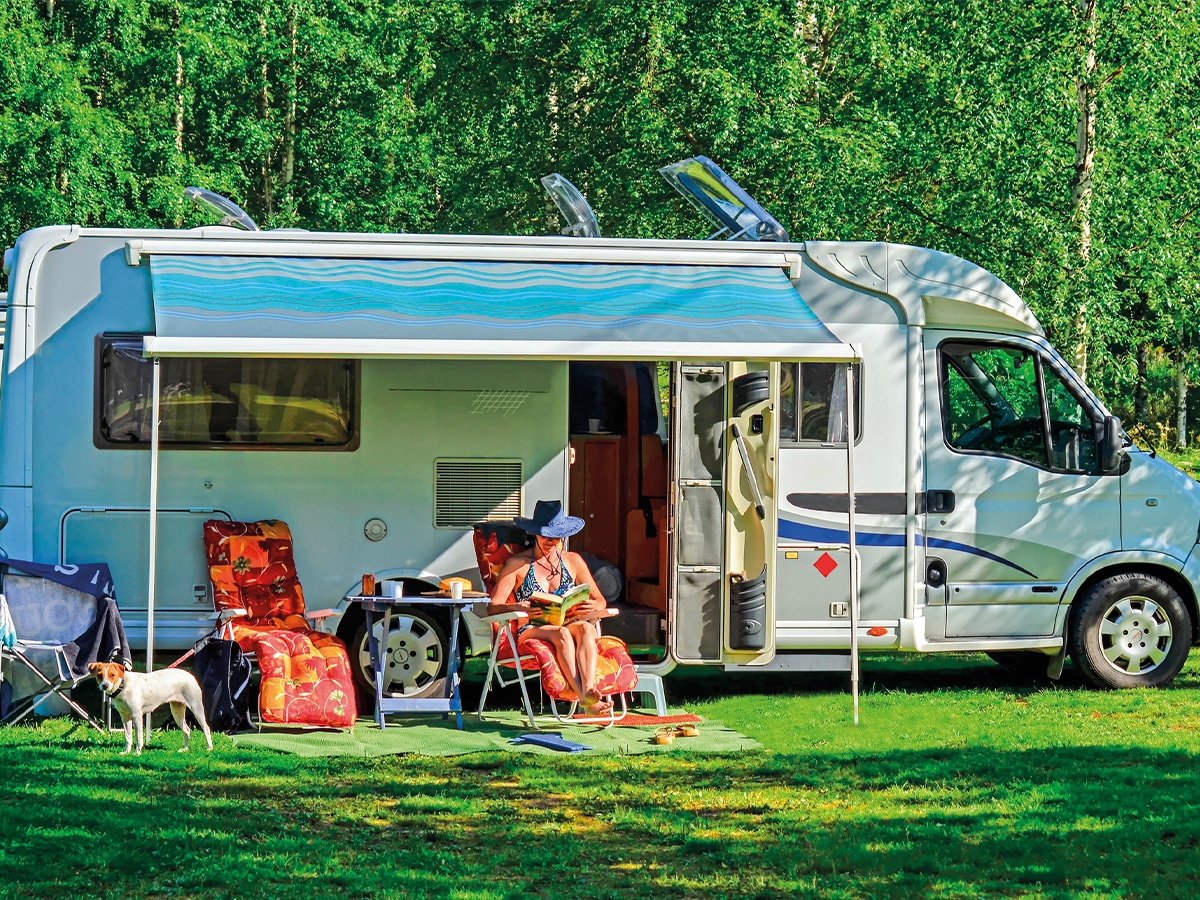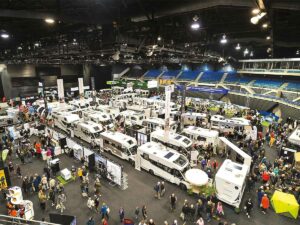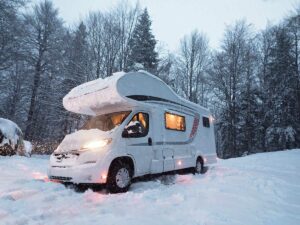If you’re on the lookout for an RV to call home, one of the most challenging aspects of your purchase can be making the call on whether to get a motorhome or a caravan. Lisa Jansen looks at some of the considerations you might want to take into account.
If you’re considering buying an RV, one of the biggest decisions you have to make is whether to get a motorhome or a caravan. Both offer the convenience of a home on wheels, but they come with distinct advantages and disadvantages, depending on your particular circumstance. Before we go any further, let’s clarify some terminology. This article will use ‘motorhome’ to refer to any RV with an engine built in, including buses and campervans. ‘Caravan’, on the other hand, refers to any RV on a trailer that requires a separate vehicle to tow it, including fifth-wheelers and campaign trailers.
Now that we’re clear on that, which one is best? As so often in life, there isn’t one right answer that fits all, but chances are one suits you better than the other, depending on personal preference and how you like to travel. Therefore, the key to making the right decision is understanding the pros and cons of each.
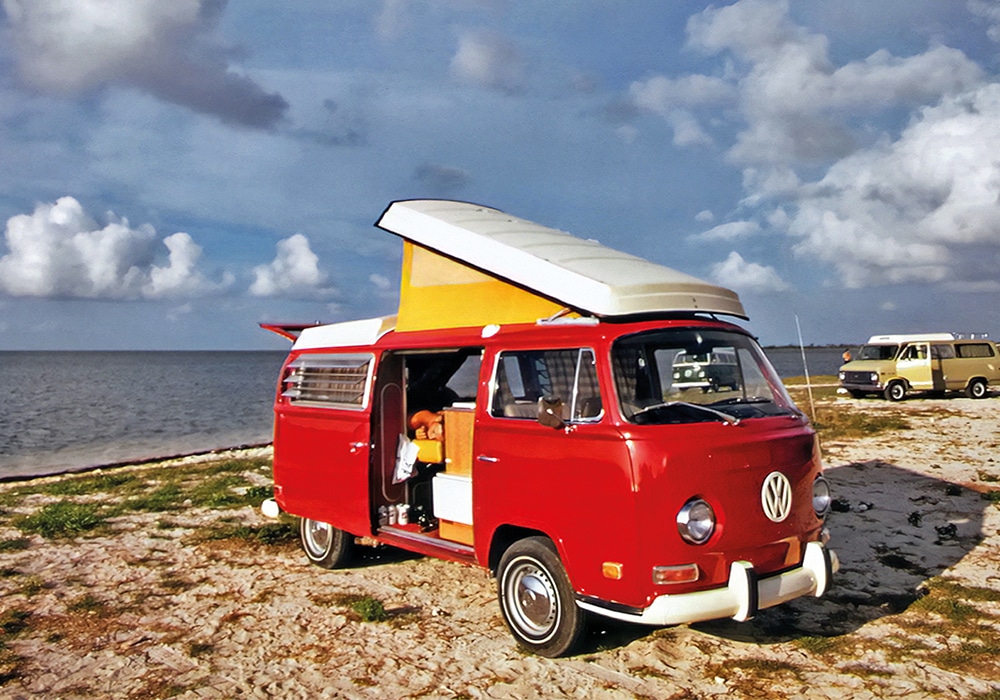
Caravans – The best bits
One of the main advantages of a caravan is the flexibility. You can park, set yourself up and leave the trailer at the campground and explore in your towing vehicle without having to pack everything up each time. Additionally, caravans are often cheaper than motorhomes of similar size. However, the cost of buying a towing vehicle must be taken into account. But many caravan owners argue they would want a separate car anyway, and when comparing the cost of a motorhome plus a car with the cost of a caravan and a tow vehicle, the latter often comes in cheaper. A separate towing vehicle also offers additional storage space, and roof racks on the car can be handy for items like kayaks, bikes and surfboards. A caravan also has the advantage that if repairs are needed on either the trailer or the car, you still have the other one to stay in or use for transportation. This can be particularly beneficial for full-time nomads who don’t have a home to return to, or when you’re travelling far away from your home base.
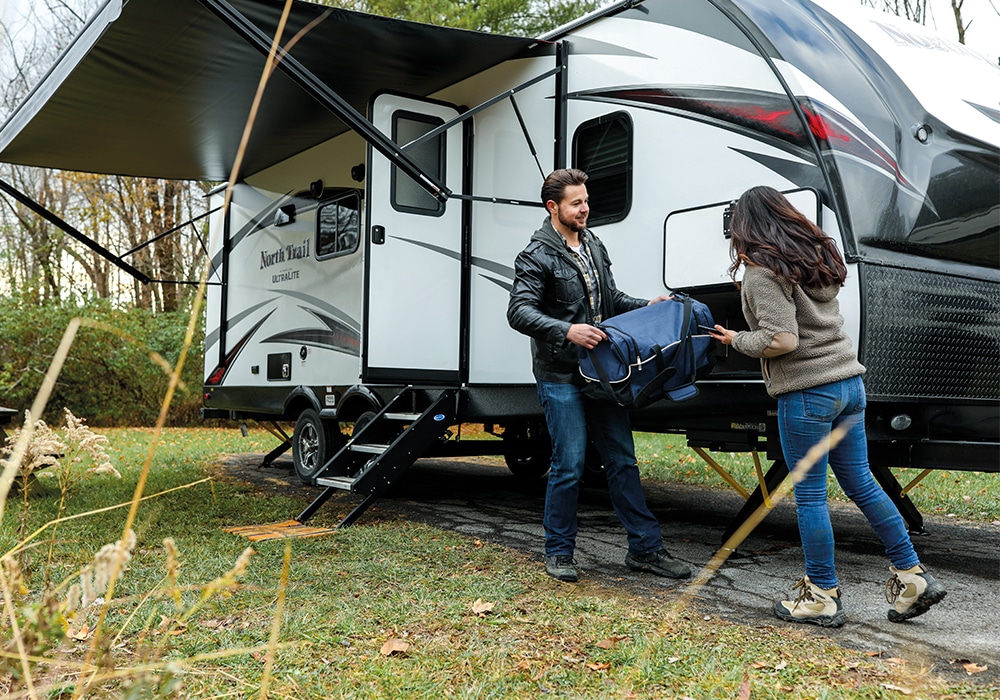
Considerations
Of course, caravans can also have their drawbacks. For starters, setting up at a campground can take longer than with a motorhome. However, modern accessories like motor-movers, levellers and automatic leg extensions have made the process easier in recent years. Similarly, getting ready to leave a campground can take longer, which can be a disadvantage in emergencies. In addition, many caravans do not have built-in fresh and greywater tanks. Instead, they must be set up when you arrive at a campground. As a result, you can’t just do the dishes or take a shower anytime, anywhere, in the same way you can with most motorhomes. However, some caravans now come with built-in tanks, and they can also be retrofitted in many cases. Do keep in mind, though, that those tanks and water add significant weight to the vehicle, and might result in your rig being overweight when on the road. Another disadvantage of caravans is the reduced manoeuvrability. For many, towing a caravan, especially a larger one, can be daunting, and backing into tight sites at campgrounds can be a challenge. Additionally, maintaining and registering two vehicles on an ongoing basis can be more expensive. And finally, it can also be harder to pull over and stop at sights along the road, as finding parking for a car and caravan can be tricky (though large motorhomes would often have the same challenge).
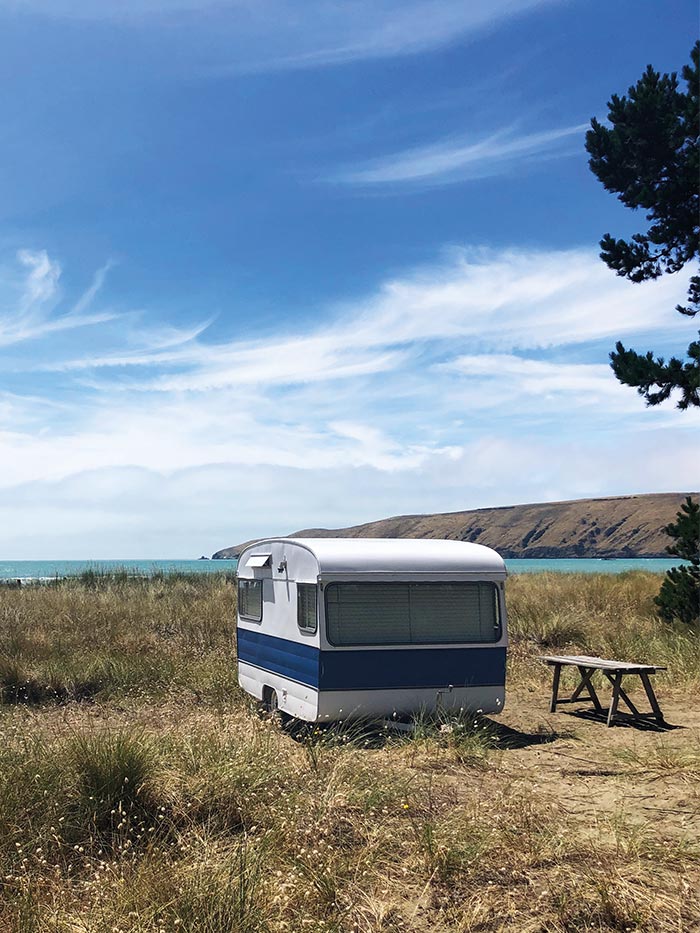
Motorhomes – The best bits
Just like caravans, motorhomes also have several distinct advantages – starting with the fact that setting up and packing down is usually much easier. With a motorhome, you can pull up at a campground (or the side of the road) and, within minutes, be ready to enjoy the views with a nice cup of coffee or a meal. Another advantage of motorhomes is that they usually have freshwater and greywater tanks built in, which means you can make lunch or coffee and do the dishes or take a shower anywhere, at any time. This added convenience is great for those who like to freedom camp in remote areas, or stop for a meal en route to the final destination. In addition, a motorhome means only one vehicle needs to be registered, insured and maintained, potentially making them cheaper in terms of ongoing costs – especially for those who do not need a separate car.
Some people report that they feel safer in a motorhome. Many travellers, especially those on their own, like knowing that if anything happens, they can get from their bed into the driver’s seat and take off in a matter of minutes without having to leave the motorhome or worrying about attaching a trailer. Finally, those who aren’t towing masters can feel more comfortable driving and parking a motorhome than a caravan.
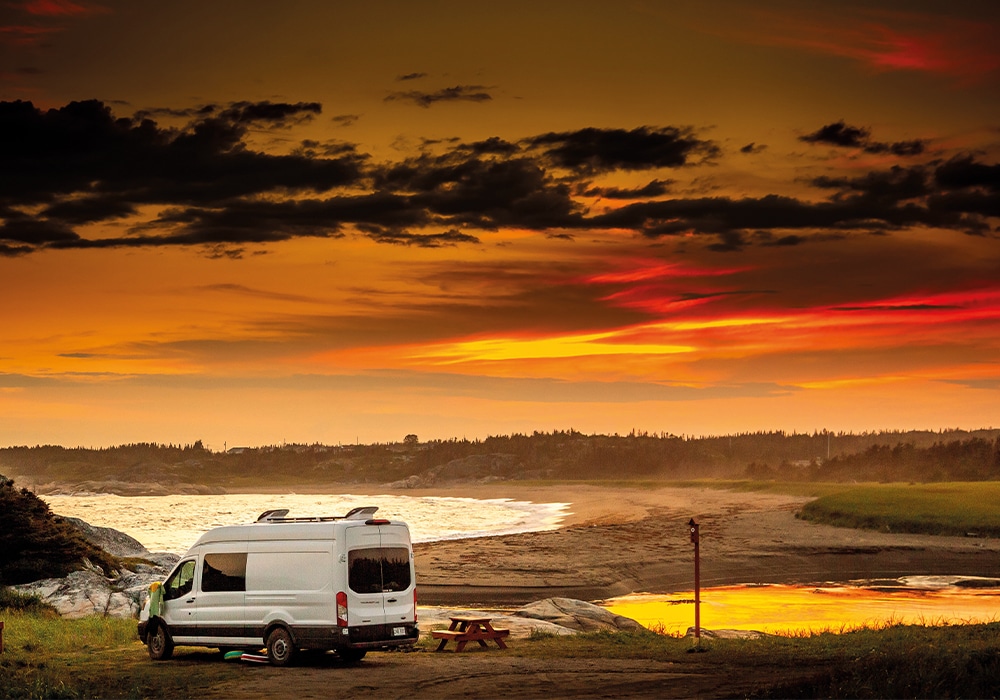
Considerations
Most seasoned travellers have found themselves in this situation at least once or twice. You’ve arrived at your campsite, you’ve set everything up, got your awning and camping chairs out and made yourself at home. And then you remember you forgot to pick up something you need for dinner, or you decide to explore some attraction that’s too far away to walk to. So you have to pack everything up and then set up again once you return. This is probably the number one reason people decide against a motorhome. Everywhere you go, your entire home has to come too.
When freedom camping or staying in campgrounds that don’t allocate sites, it also means that you need to give up your spot and hope to find one again when you return. Meanwhile, your neighbours will just leave their caravan and take off in their car. Another disadvantage is that motorhomes tend to be more expensive to purchase than caravans of the same size. Additionally, storage can be a challenge without an extra towing vehicle, especially in smaller motorhomes. Lastly, with the driver’s cab taking up space, there is less living space in many motorhomes compared to a caravan of the same length. However, in some motorhomes, the front seats are set up as swivel chairs, or there is a bed above the cab, so the space is used as part of the living area.
So, which one is right for you?
Whether a motorhome or a caravan is right for you is a personal choice; there’s no such thing as a ‘one-size-fits-all’ answer. Take some time to think about how you like to travel, and then consider what that would look like in a motorhome versus a caravan. Or even better, try to hire both for a week or two each, and see first-hand what works for you and what doesn’t. Whichever you choose, make sure you do your homework to understand not only the pros and cons of motorhomes versus caravans but also the difference between the various models within each category. But most importantly, enjoy your travels around our beautiful country, no matter what home on wheels you end up buying.

